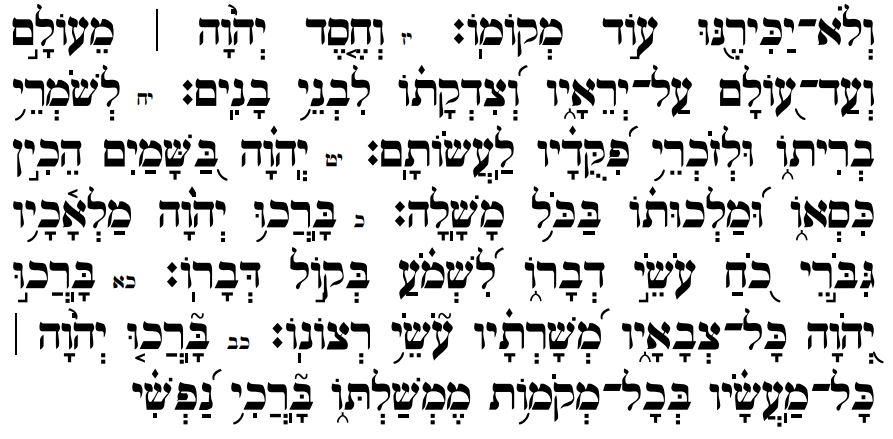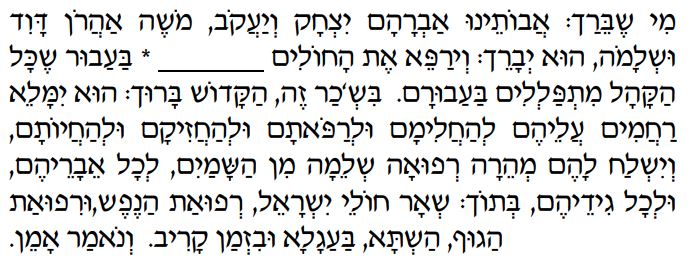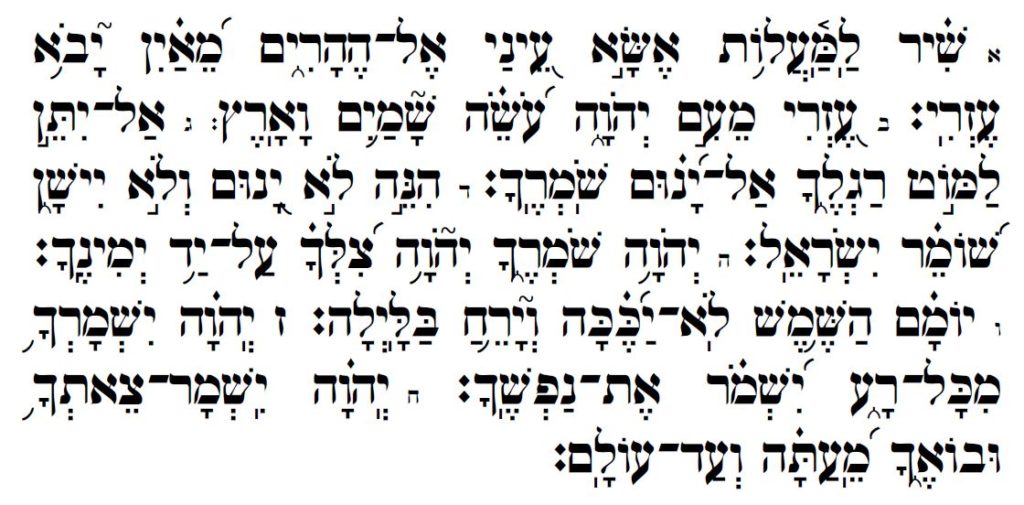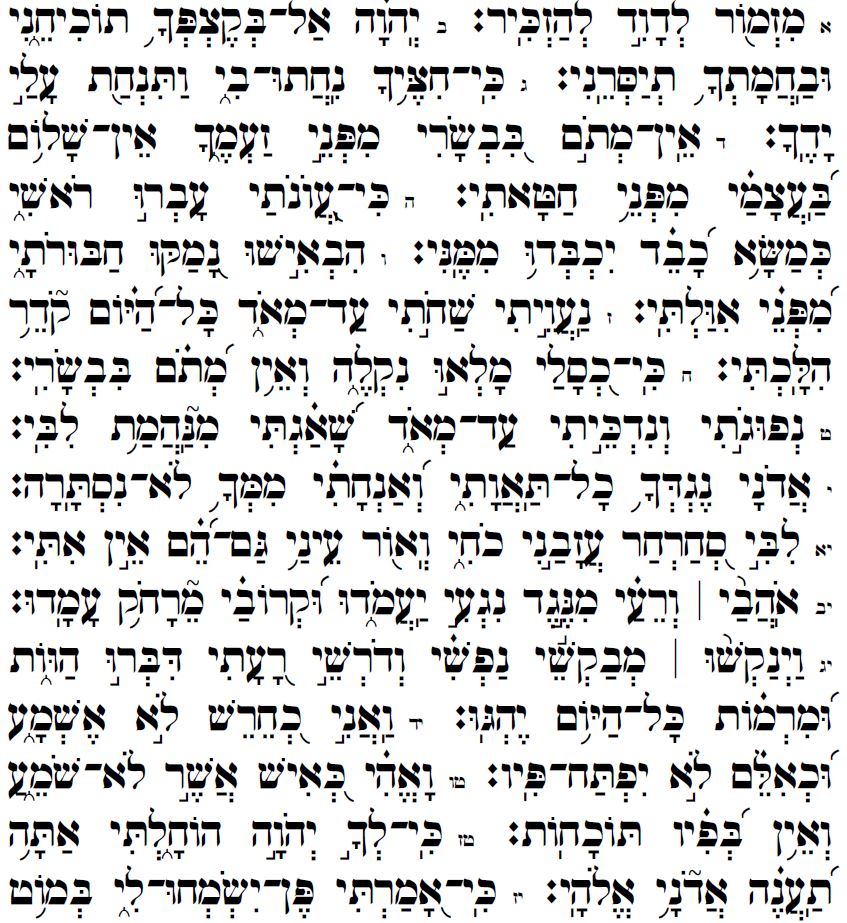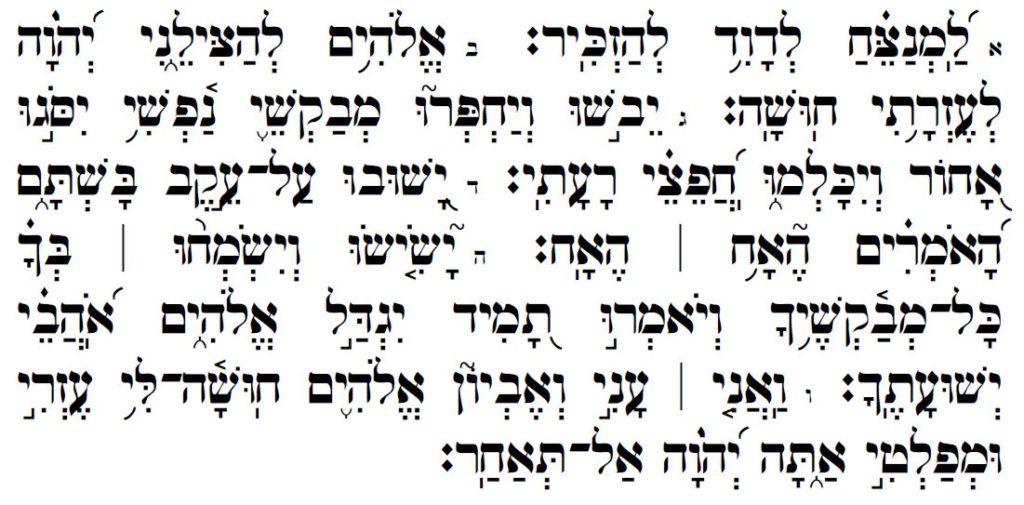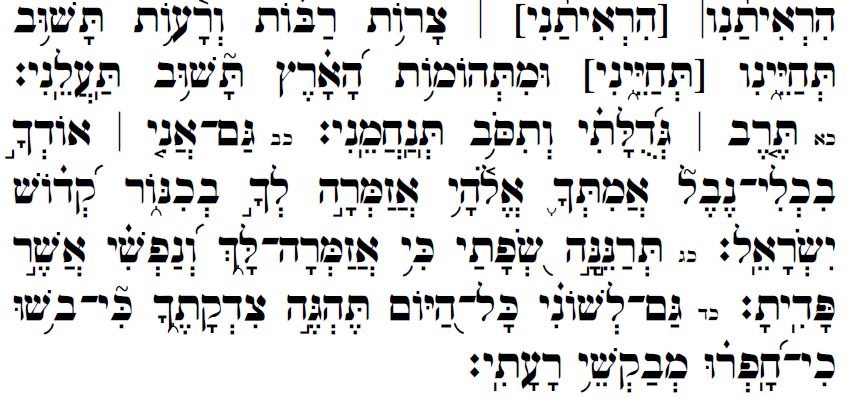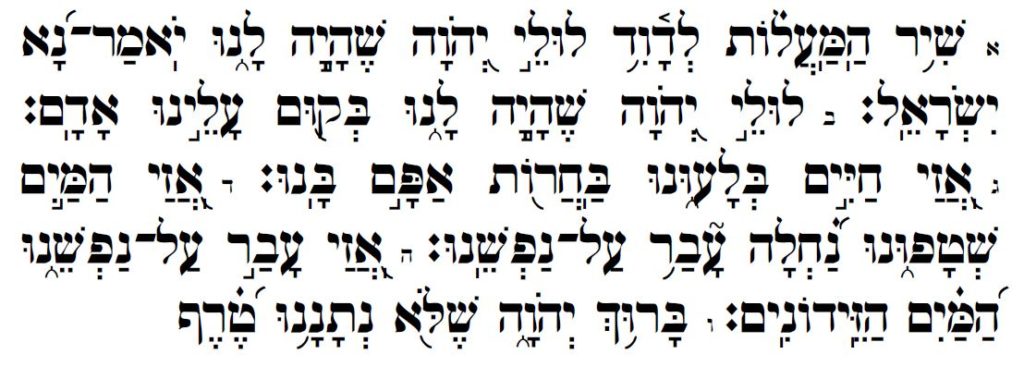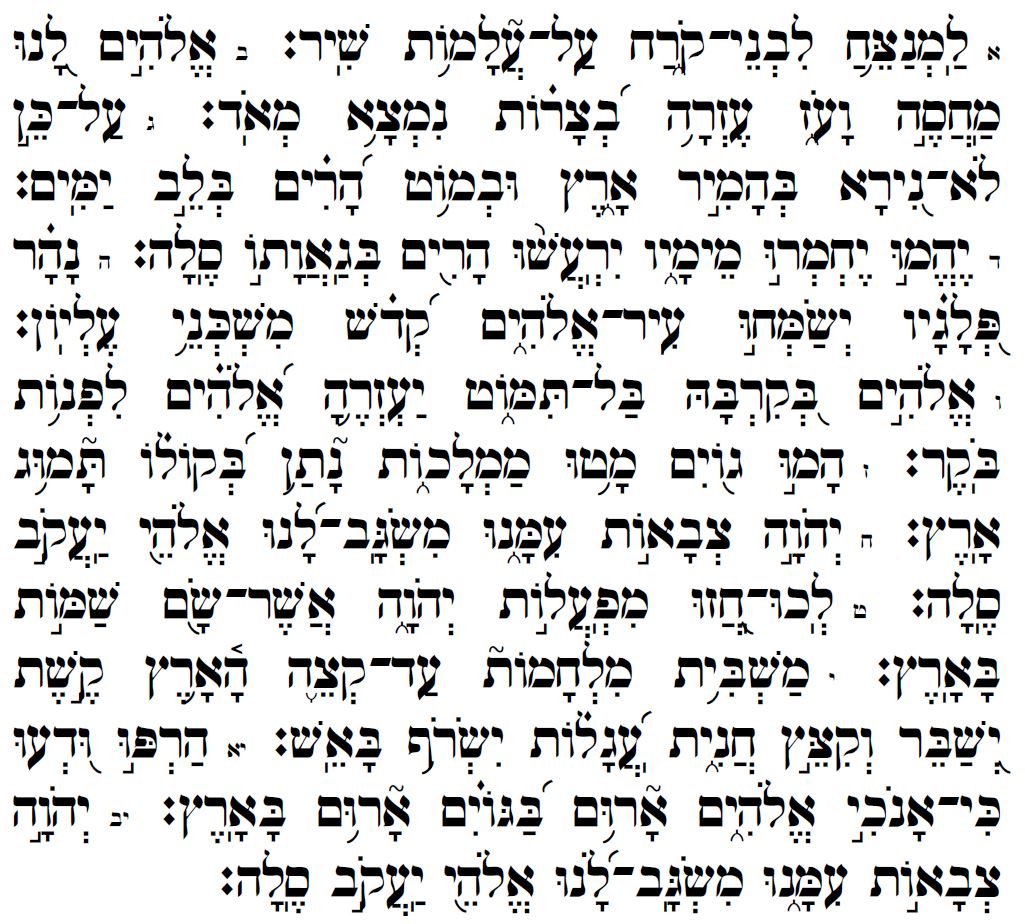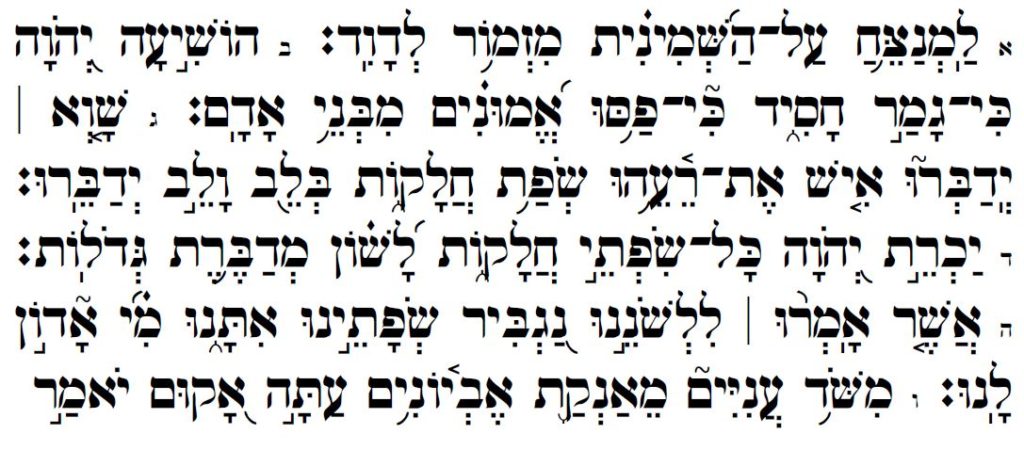Introduction to Tehillim
Tehillim (תהילים) is the Hebrew name for the Book of Psalms, which is a collection of 150 religious poems and hymns that are an important part of Jewish scripture.
Tehillim derives its name from the Hebrew word ‘Tehillah,’ which translates to ‘praise.’ Within this text, each individual chapter is referred to as a ‘Tehillah.’ When discussing multiple chapters collectively, the plural form ‘Tehillim’ is used, reflecting the inclusion of 150 distinct ‘perakim’, or chapters.
Tehillim was originally composed with the intent of being sung in the Bais Hamikdash, or the Holy Temple, though it is noteworthy that King David made a specific request for its recitation in shuls, or synagogues, as well. Evidently, this request has been honored, as attested by the prominent role that Tehillim holds in our prayers and religious practices.
The overall theme of Tehillim is ‘Praising Hashem’. However, many chapters address King David’s personal struggle or concern for Klal Yisroel. We include the chapters related to praise in our daily prayers. We read the chapters related to King David’s struggles out of its original context as a plea of our own.
Not in Tehillim
In English:
He Who blessed our forefathers Abraham, Issac, and Jacob, Moses, Aaron, David, and Solomon – may He bless and heal the sick persons: – insert patient’s Hebrew Name, son/daughter of patient’s mother’s Hebrew name – on behalf of the whole congregation’s prayer for them. In reward for this, may The Holy One, blessed is He, be filled with compassion for them to heal them, to strengthen them, and to revive them. And may He send them speedily a complete recovery from heaven, for all limbs and blood vessels, among the sick people of Israel, a recovery of the spirit, and a recovery of the body, swiftly and soon. And you shall say Amen.
In Hebrew:
You can order tehillim mechulak directly from our site at our ordering page.
Structure and Organization
Chazal tells us that the 5 sections of Tehillim correspond to the five books of Moses: Bereshis (Genesis), Shemos (Exodus), Vayikra (Leviticus), Bamidbar (Numbers), and Devarim (Deuteronomy).
Source: Midrash Shocher Tov, Chapter 1
No. The order of Tehillim is an enigma and eludes any thematic or chronological order. King David’s death is mentioned at the end of Book Two. Many lines from later chapters precede that.
There are commentaries that attempt to string the flow of themes from one chapter to another, such as Rabbi Saadia Gaon.
Yes. There is a way the chapters can be divided evenly so that the entire sefer can be said over the course of a week. The order is as follows:
- Day 1 (Sunday): Tehillim (Psalms) 1 – 29
- Day 2 (Monday): Tehillim (Psalms) 30 – 50
- Day 3 (Tuesday): Tehillim (Psalms) 51 – 72
- Day 4 (Wednesday): Tehillim (Psalms) 73 – 89
- Day 5 (Thursday): Tehillim (Psalms) 90 – 106
- Day 6 (Friday): Tehillim (Psalms) 107 – 119
- Day 7 (Shabbos): Tehillim (Psalms) 120 – 150
Source: Sefer Tzeidah LaDerech, 4th maamar, klal chamishi (this source has a slightly different breakdown of which chapters end and start each day, but it is THE original source. Artscroll Tehillim, and many other sources have the breakdown as outlined above)
| 1st of the Month | Tehillim 1 – 9 |
| 2nd of the Month | Tehillim 10 – 17 |
| 3rd of the Month | Tehillim 18 – 22 |
| 4th of the Month | Tehillim 23 – 28 |
| 5th of the Month | Tehillim 29 – 34 |
| 6th of the Month | Tehillim 35 – 38 |
| 7th of the Month | Tehillim 39 – 43 |
| 8th of the Month | Tehillim 44 – 48 |
| 9th of the Month | Tehillim 49 – 54 |
| 10th of the Month | Tehillim 55 – 59 |
| 11th of the Month | Tehillim 60 – 65 |
| 12th of the Month | Tehillim 66 – 68 |
| 13th of the Month | Tehillim 69 – 71 |
| 14th of the Month | Tehillim 72 – 76 |
| 15th of the Month | Tehillim 77 – 78 |
| 16th of the Month | Tehillim 79 – 82 |
| 17th of the Month | Tehillim 83 – 87 |
| 18th of the Month | Tehillim 88 – 89 |
| 19th of the Month | Tehillim 90 – 96 |
| 20th of the Month | Tehillim 97 – 103 |
| 21st of the Month | Tehillim 104 – 105 |
| 22nd of the Month | Tehillim 106 – 107 |
| 23rd of the Month | Tehillim 108 – 112 |
| 24th of the Month | Tehillim 113 – 118 |
| 25th of the Month | Tehillim 119 (Letters א to ל) |
| 26th of the Month | Tehillim 119 (Letters מ to ת) |
| 27th of the Month | Tehillim 120 – 134 |
| 28th of the Month | Tehillim 135 – 139 |
| 29th of the Month | Tehillim 140 – 144 |
| 30th of the Month | Tehillim 145 – 150 |
Tehillim in Davening
The Yehi Ratzon before Tehillim is said as a personal prayer and request that the Psalms about to be recited be accepted and considered as if King David were saying them himself. Although the words are being said in a context different than when they were originally composed, we beseech that the words, vowels, pronunciations, and tunes should stand in their own merit.
Psalms 101 and 102 can both be said as a helpful prayer to bear children.
**It’s important to note that while Tehillim can be a source of comfort and inspiration, it’s not a substitute for medical advice or treatment. If you are struggling with infertility or other challenges related to having children, it’s important to seek support from medical professionals and other resources in addition to saying Tehillim.
Tehillim קא:
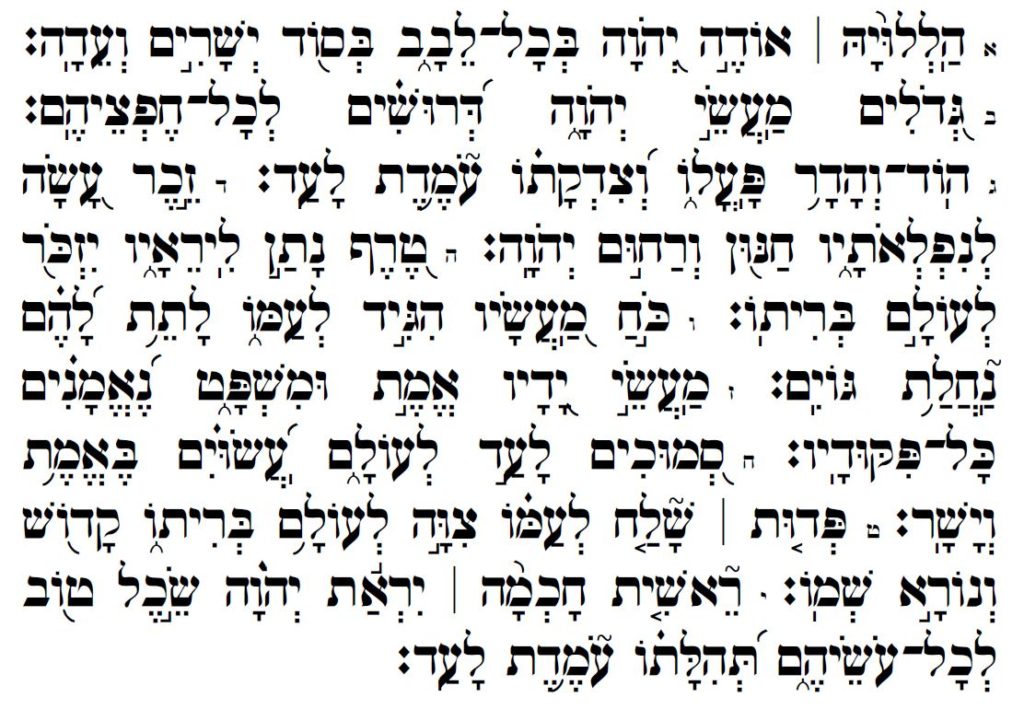
Tehillim קב:


Rosh Chodesh is the first day of any month in the Jewish Calendar (which follows the lunar cycle). Psalm 104 is a song of praise to G-d for the creation of the universe and its continued sustenance. One could say that the celebration of a new month reflects this aspect of G-d’s perpetual relationship with the world.
Tehillim: Kappitel קד





Tehillim צא (Psalm 91) spotlights the protections that G-d promises to those with emunah and bitachon in Him. It describes Hashem as a refuge, shade (protective), fortress, and wing (covering to protect). A person traveling is vulnerable (by lacking the resources one may have at home) and it is during this time, that a prayer for protection is added.

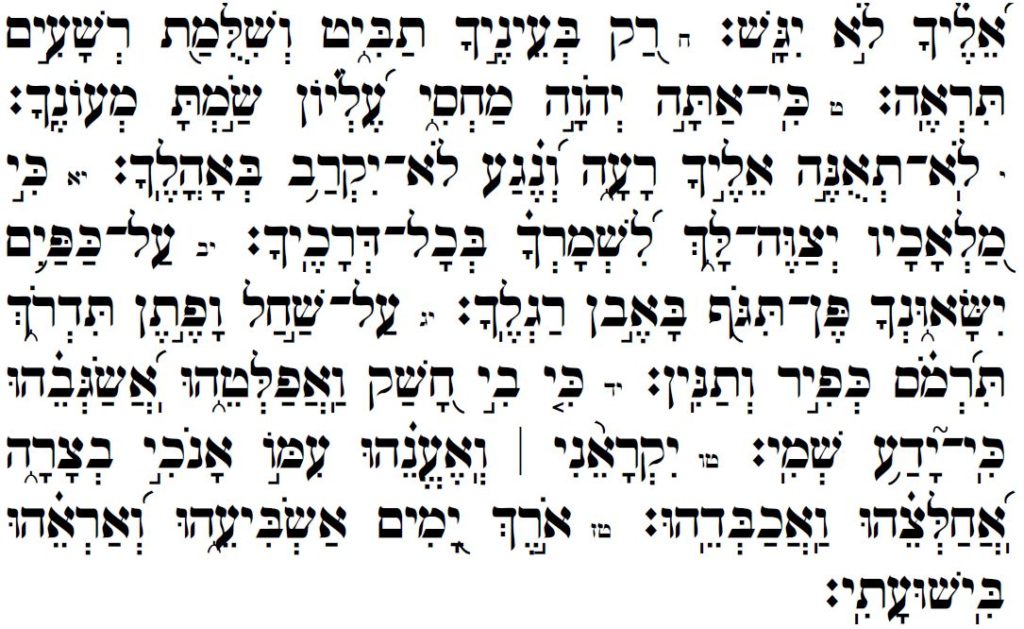
Chapter 119 (תְּהִלִּים ק’ט) stands as the most extensive section within the entire sefer. It is distinguished by its alphabetical structure, containing 8 pesukim dedicated to each letter of the alphabet. The overarching theme of this chapter remains faithful to its initial verse, emphasizing the universal aspiration for individuals to embrace a Torah-centered existence, irrespective of the time, place, or situation.
This chapter contains 176 verses and can be referenced here. תְּהִלִּים ק’ט
Psalm לב (Tehillim 32): This Psalm is associated with finding a partner and in seeking forgiveness.
Psalm לח (Tehillim 38): This Psalm doesn’t reference or have a direct association with finding a spouse. However, the theme is that one should repent for their sins. It concludes with a hopeful plea of redemption.
Psalm ע (Tehillim 70): This Psalm is a cry for Hashem’s help in times of distress or trouble.
Psalm עא (Tehillim 71): King David makes the plea that, even now in his old age, he be further blessed with rejuvenation, dignity, and grace. This plea for blessing is not just for himself, but for the blessing of others.
Psalm קכא (Tehillim 121): This Psalm is often recited for protection and guidance. It is a beautiful expression of trust in God’s assistance.
Psalm קכד (Tehillim 124): This Psalm does not explicitly mention finding a spouse, its themes of trust and reliance on God may be seen as relevant to those seeking a life partner.
These kapitels of Tehillim are said for a shidduch.
In the short form of tachanun (said most frequently in Ashkenaz circles), two pesukim (verses) from Shmuel Bais כד:יד [Samuel 2 (24:14)] precede kapitel ו (Tehillim Psalm 6), starting from the second verse. Tachanun is also referred to as נפילת אפיים (nefilas apayim). This was composed when King David was sick and in pain, and he recognized the pain as a release for the soul burdened by the shackles of sin.

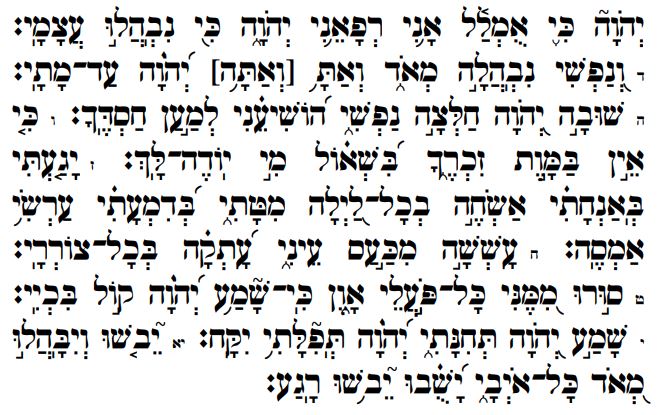
One fulfills the Torah Mitzvah of (וְאָהַבְתָּ לְרֵעֲךָ כָּמוֹךָ) v’ahavta larayacha kamocha, which emphasizes the importance of loving one’s fellow human being. Source: Chashukei Chemed Brachos 12b. The act of reciting Tehillim is seen as an attempt to reverse any (גזר דין) strict decree placed upon the sick person and instead invoke (רחמי שמים) mercy from heaven.
וְאָהַבְתָּ לְרֵעֲךָ כָּמוֹךָ אֲנִי ה: Kamocha (כָּמוֹךָ) is gematriah 86 which is equivalent to the Name of Hashem that represents strict justice ( אלהים ) Elokim. If one focuses on loving one’s fellow – specifically, this individual, then ‘ani Hashem’ (using the Name that represents Divine mercy יהוה )
Also, The Gemara (Brachos 12a) tells us that “Anyone who is able to pray for his friend and does not is called a חוֹטֵא .”
If you would like to know which kapittel to say: Tehillim for the sick.
The most commonly recited Psalms for healing include 20, 30, 41, 88, and 103. Each of these chapters carries themes of healing, trust in God, and deliverance from distress.
Psalm 20: Often recited for divine assistance, this chapter reflects a plea for help in times of trouble. It’s believed to invoke God’s protection and support.
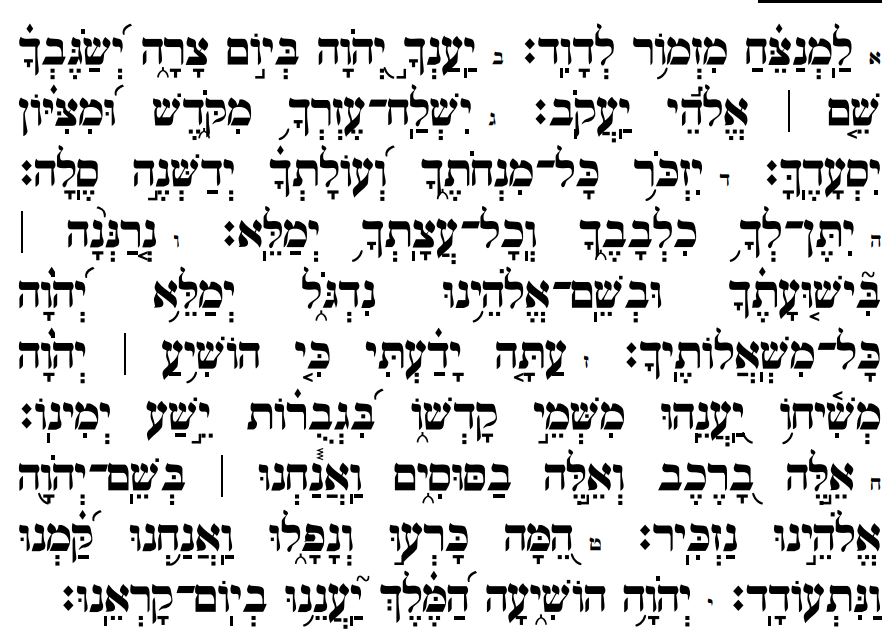
Psalm 30: Known as a song for the dedication of the House of David, it speaks of moving from mourning to joy, and thus is seen as a powerful chapter for healing.
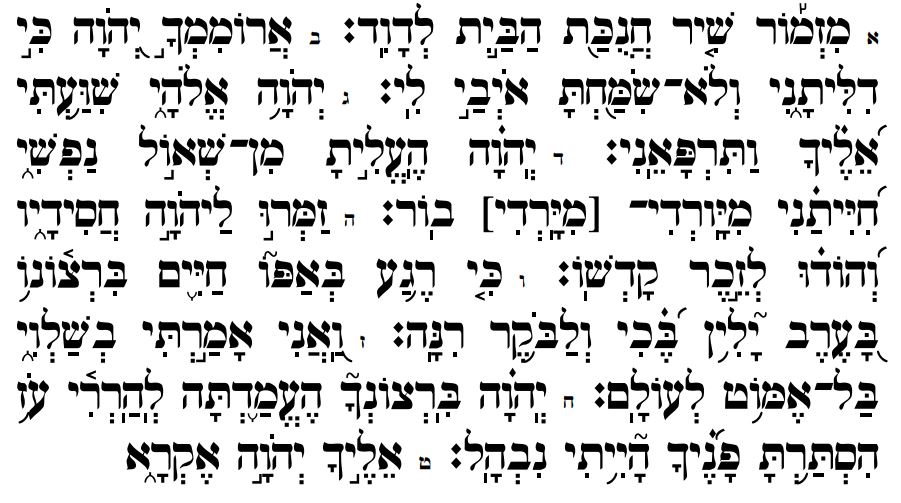
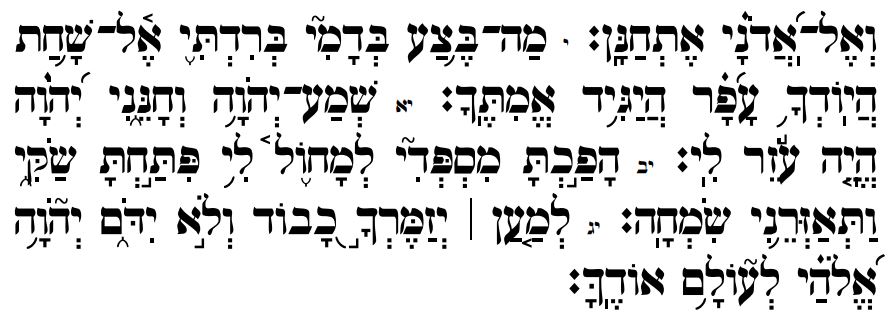
Psalm 41: This chapter begins with blessings for those who consider the poor and the sick, making it particularly relevant. It also includes a personal appeal for healing.

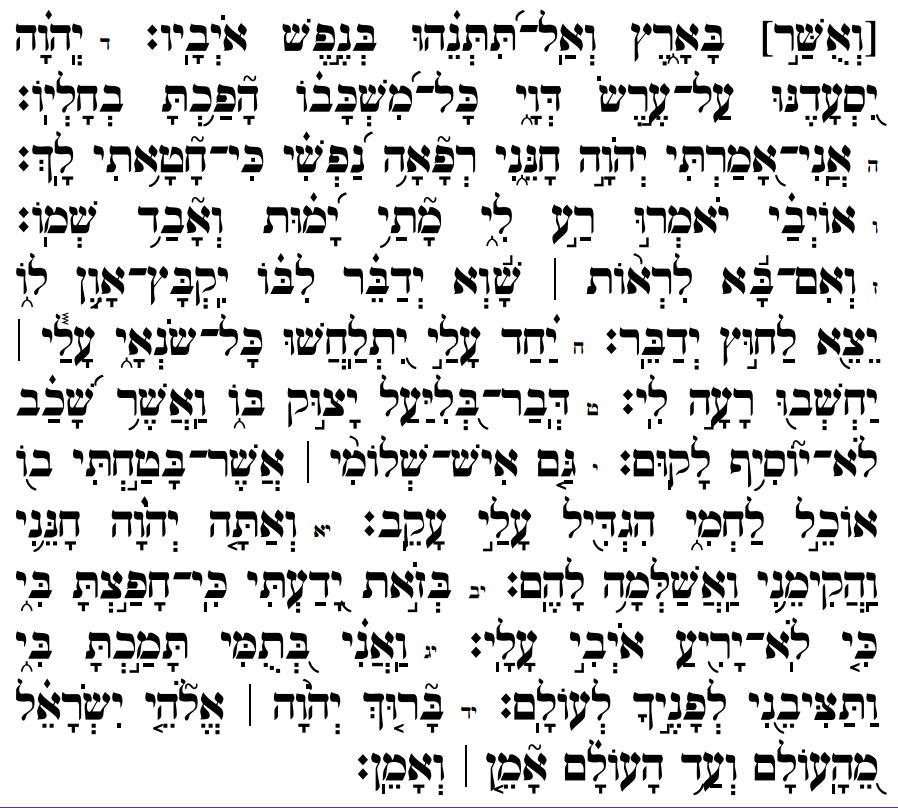
Psalm 88: A somber prayer for help from the depths of despair, it reflects the intensity of seeking divine intervention in the direst of circumstances.
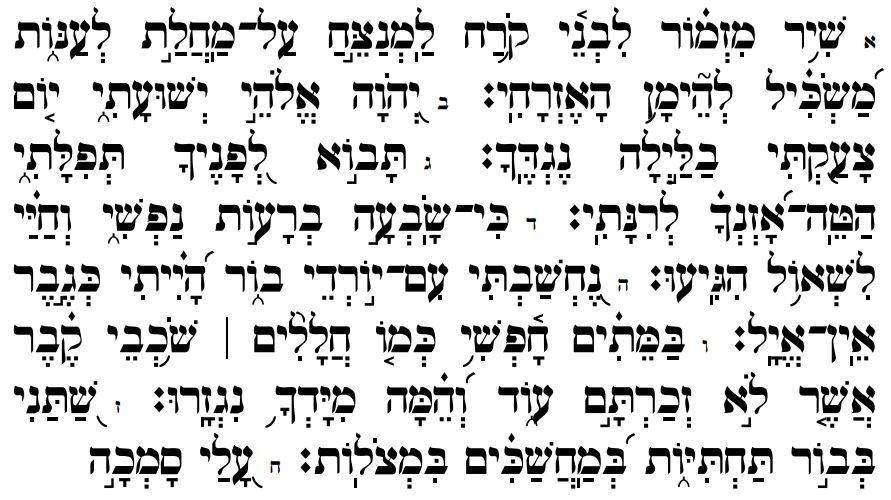
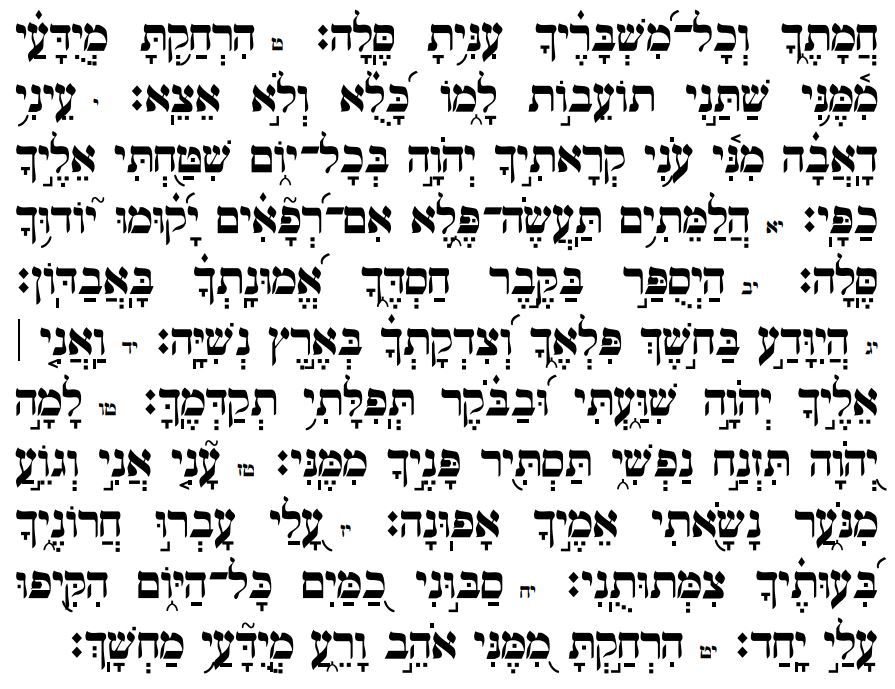
Psalm 103: This Psalm of David praises God’s mercies and is often recited for healing, emphasizing God’s role as a healer who forgives all iniquities.


